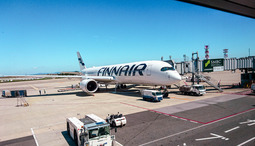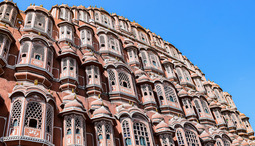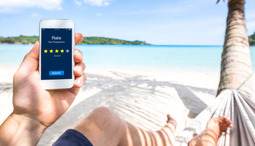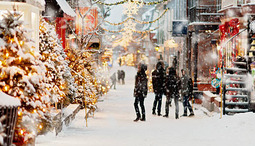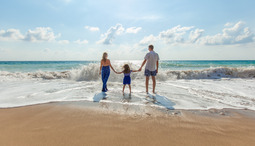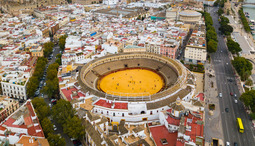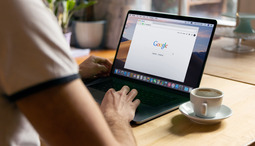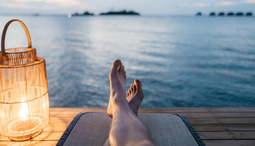- On
- 30 Aug 2023
- Reading time
- 5 minutes
When planning a trip, you most likely aren’t expecting an unforeseen event to occur, especially a bad one. That’s because trips are usually meant to be relaxing and sometimes thoughtless (not in an ignorant way). However, accidents may be happening more during these trips because people aren’t as careful as they’re at home. At the same time, one of the worst things to occur during these holiday seasons is when traffic volume increases, so there’s a risk of car accidents. Even in the UK, every summer getaway gets roads, airports and ferry ports packed with locals and tourists coming and going.
Holidays are when people are less conscious about their impact on a place, which is why they’re prone to uncomfortable situations and injuries. Luckily, travellers can be more intuitive about their safety and also protect the spaces they’re visiting by keeping a few things in mind.
Doing an extra maintenance appointment before the trip
Deciding to travel by car is a great idea because you have your own space for luggage and also feel more comfortable during the drive. Still, if you want to ensure your vehicle is at its best when leaving your house, here’s what you should check beforehand:
The dashboard warning lights: after turning on the ignition, see if any of the warning lights are on and decide if it’s worth a visit to a professional;
The battery: if you’re noticing a slow cranking after starting the car, it may be time to change the battery car;
The engine’s cooling systems: if the reservoir in the coolant level is below the minimum mark and the colour is rather orange, it would be best to change the system with a new one;
The tyres: is there’s obvious wear on the tyres, check for an alignment problem or under or over inflation;
The brakes: if your brakes are squeaking or shuddering, check the hydraulic fluid reservoir or go to your regular car service to see if there’s something more serious than that;
Ensuring your car is necessary for the safest trip, considering the congested traffic you’re about to experience. Being able to avoid accidents and injuries is best. Still, despite that, other road participants might not be as careful as you are, which may lead to an unfortunate accident. In that case, you’re eligible to make a personal injury claim if other vehicles have collided or crashed into your vehicle.
Posting on social media might not be such a good idea
What’s a holiday if you can’t post on the internet about it? Well, know that your safety is in danger when you’re posting about your location while you’re still there or exposing details about your trip long before it happens. Your home security might be compromised, as thieves know exactly when you’re missing from home, so they can easily enter it.
At the same time, your security is in danger because nowadays, anyone can see where you are if you post online, and viewers might not have good intentions. Plus, despite the settings of your posts, you can’t be sure who is actually seeing them.
Posting on social media can also pose financial theft dangers. For example, if you post information about tickets or accommodation, there are numerous ways unlawful people can interfere with your plans and even access your finances.
Moreover, if you post while you’re travelling, especially when driving, chances are that you’re less aware of your surroundings, leading to accidents of all kinds. So, it’s best to wait for the drive and holiday to end before thinking about your posts on Instagram or Facebook.
Having a solid travel safety kit in your car
With all the space your vehicle provides, it would be a pity not to use it and have enough tools in your safety kit. Besides this type of kit for your car, you should also prioritise your well-being and take everything needed in case something unfortunate happens.
A first aid kit is essential when leaving home for a while, and it should contain the following:
The basics: gauze, adhesive plasters, cotton swabs, tweezers, saline sachets, etc.;
Medication: antimalarial tablets, anti-histamines, painkillers, anti-diarrhoeal agents;
Water purification device or a regular filter to drink and use clean and safe water;
Insect repellent against mosquitoes, ticks, fleas and biting flies;
Sun protection creams and proper clothing to avoid sunburns;
At the same time, you’ll need an emergency car kit to ensure you won’t be left with your vehicle dead in the middle of nowhere. Luckily, there are numerous kits already packed with the essentials for Europe, which include some of the following:
Stickers and beam reflectors;
Emergency bulb kits;
Warning triangles;
Visibility vests;
Power banks;
Screenwash pod;
Guidance leaflet;
Storage bag;
Cables;
Fire extinguisher;
Of course, you can add whatever you like to the car kit. Its size will depend on the place you’re travelling, the type of car you drive, as well as personal preferences, but for now, you’ve got to have the basics.
Being prepared for losing the internet connection
While relying on the internet is a good choice, especially for looking up information and strolling around cities, you might be driving around remote areas with no reliable internet. Still, you need to continue the drive to reach the accommodation or destination. In this case, it’s best to be prepared and purchase some physical maps of where you can find the road back home in no time.
Moreover, offline map apps are available, so you can check them out and install them on your phone just in case, but you should also make sure not to waste your battery life. Regardless, what’s best is to have a thorough plan before starting the holiday and know how to adapt to the situation.
What’s your next destination?
Now that the holiday season is slowly approaching its end, you might think that summer is over. But most people travel until late autumn, so if you decide to hop into the car and go somewhere nice, make sure to follow this safety guide and take care of yourself wherever the road takes you.

